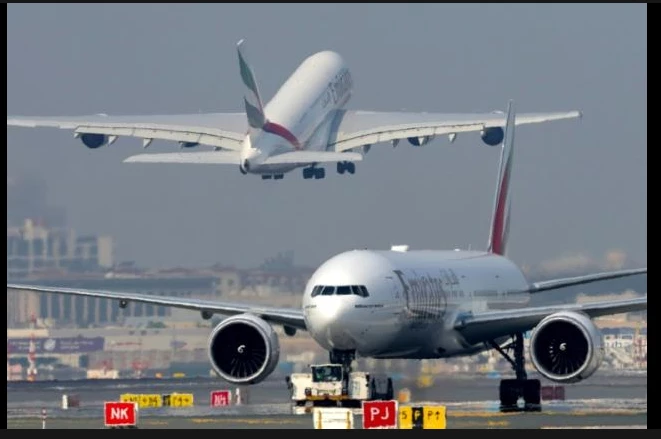Airlines learn patience in constrained Airbus-Boeing duopoly

Stay tuned with 24 News HD Android App

With the latest Boeing crisis, airlines are staring down more delays, a familiar problem in a market in which both the US giant and rival Airbus face supply chain constraints.
Over the past year Boeing has struggled with difficulties on its star plane, the 737 MAX, culminating with a major in-flight safety incident on Alaska Airlines in early January.
Boeing had been eyeing a ramp-up of MAX production through 2025, but that plan has now been frozen by the Federal Aviation Administration.
The FAA's move likely will further slow Boeing's delivery timetable, which was already behind schedule.
While the manufacturer's European rival Airbus has avoided comparable safety troubles, it also faces a major headache due to a problem with engines built by Pratt & Whitney, a unit of RTX.
Hundreds of Airbus 320neo jets must be inspected between 2023 and 2026 to check for microscopic "contamination" of metals used to make the engines.
The inspections and any necessary engine fixes require 250 to 300 days per aircraft, another hurdle for airlines eager to take advantage of strong travel demand.
Some of Boeing's customers have seemed to open the door to potentially moving orders elsewhere.
Alaska Airlines, which until now has been exclusively supplied by Boeing, had been considering orders of the Boeing 737 MAX 10 prior to the January 5 incident.
But Alaska Chief Executive Officer Ben Minicucci suggested a possible shift given its pending acquisition of Hawaiian Airlines, which is supplied by Airbus.
"Everything is open at this point," Minicucci said in a recent broadcast interview. "We are going to do what is best for Alaska."
American Airlines CEO Robert Isom last month said Boeing "needs to get their act together," while noting the carrier has large fleets of Airbus and Boeing planes.
Asked if he would consider Boeing for an upcoming order, Isom said, "we're going to make sure that whatever is purchased, whether it be from Airbus, Boeing, Embraer... is incredibly reliable, safe right from the get-go off the factory floor."
- Long wait -
But changing plane suppliers is not so straightforward.
Airlines must secure a spot in the order book of a manufacturer, which must ready supply chains to execute a multi-plane order over months and years; that is not so easy right now.
The Airbus production infrastructure is completely booked through 2030 for single-aisle planes -- the A320 line -- and through 2028 for long-distance jets, the A350.
"We must deliver 8,600 planes on time and ready to fly," Christian Scherer, chief executive of Airbus's commercial aircraft business, said last month.
The plan is for Airbus to boost A320 production to 75 per month in 2026 compared with 48 monthly in 2023. Even under that schedule, airlines are signing contracts for jets that won't be delivered for years.
Despite the yawning timeframe, "we are still getting more orders," Scherer said.
Airbus in 2023 received net new orders of 2,094, smashing the previous record of 1,503 a decade earlier.
The European giant has won myriad orders from airlines renewing their fleets to meet emission targets in 2050, a period when overall air travel is expected to have doubled.
- Regulatory scrutiny -
Meanwhile across the Atlantic, Airbus's big US rival faces persistent scrutiny.
Besides questions about quality control following the Alaska Airlines incident on the 737 MAX 9, Boeing has yet to receive certification on the 737 MAX 7 and the 737 MAX 10 -- the smallest and largest versions of the single-aisle model.
Boeing has received 391 orders for the MAX 7 and 1,180 for the MAX 10. The latter was supposed to have commenced deliveries in 2023.
Given the uncertain timeframe, airlines are retooling their schedules.
Like Airbus, Boeing's order book is robust, with more than 4,000 orders across the MAX program out of a total of 5,626 plane orders.
The next available order slots for 737s are "towards the end of the decade," Boeing said.
Both companies face pressures that have persisted since the worst of the pandemic's logistics woes.
"The supply chain is constrained," said Christopher Raite, a senior analyst at Third Bridge.
"It's simply not there to support that level of production ramp up," said Raite, who also points to a supply crunch of critical metals from Russia and Ukraine.
What will airlines do if they can't get planes in time from Boeing and Airbus?
One possibility is renting jets, said Michel Merluzeau, an aeronautics specialist with consulting firm AIR.
